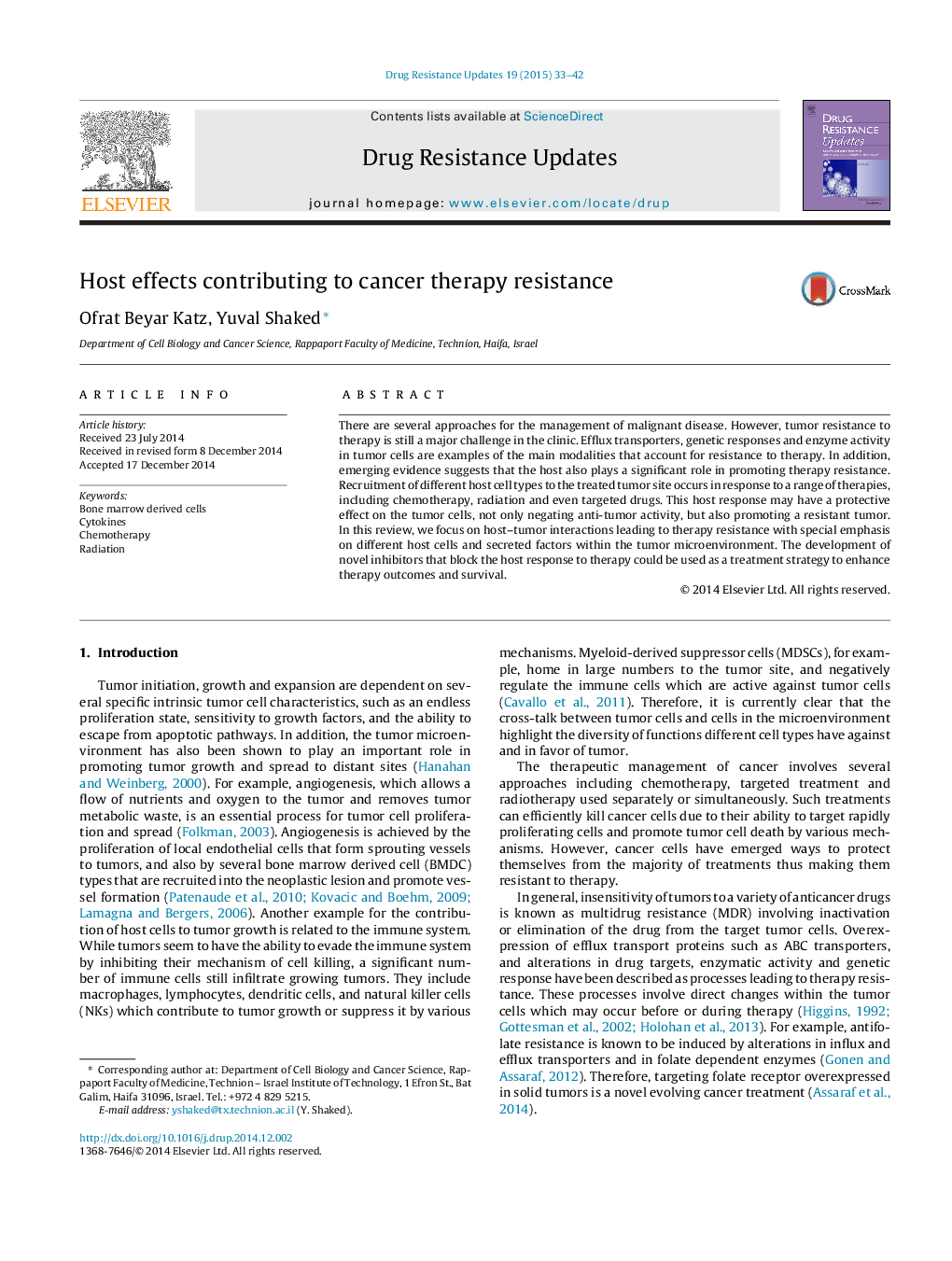| Article ID | Journal | Published Year | Pages | File Type |
|---|---|---|---|---|
| 8436772 | Drug Resistance Updates | 2015 | 10 Pages |
Abstract
There are several approaches for the management of malignant disease. However, tumor resistance to therapy is still a major challenge in the clinic. Efflux transporters, genetic responses and enzyme activity in tumor cells are examples of the main modalities that account for resistance to therapy. In addition, emerging evidence suggests that the host also plays a significant role in promoting therapy resistance. Recruitment of different host cell types to the treated tumor site occurs in response to a range of therapies, including chemotherapy, radiation and even targeted drugs. This host response may have a protective effect on the tumor cells, not only negating anti-tumor activity, but also promoting a resistant tumor. In this review, we focus on host-tumor interactions leading to therapy resistance with special emphasis on different host cells and secreted factors within the tumor microenvironment. The development of novel inhibitors that block the host response to therapy could be used as a treatment strategy to enhance therapy outcomes and survival.
Related Topics
Life Sciences
Biochemistry, Genetics and Molecular Biology
Cancer Research
Authors
Ofrat Beyar Katz, Yuval Shaked,
